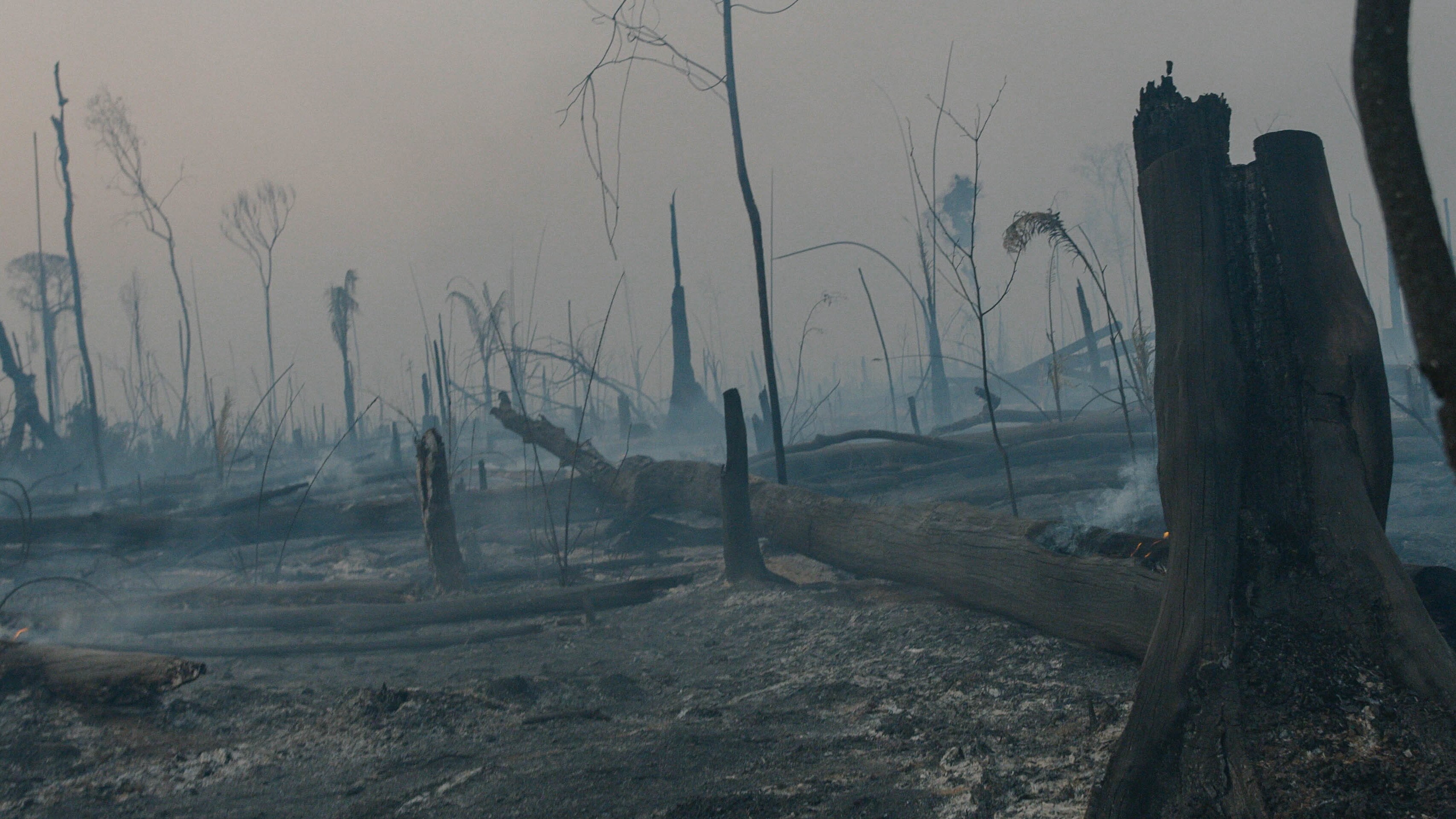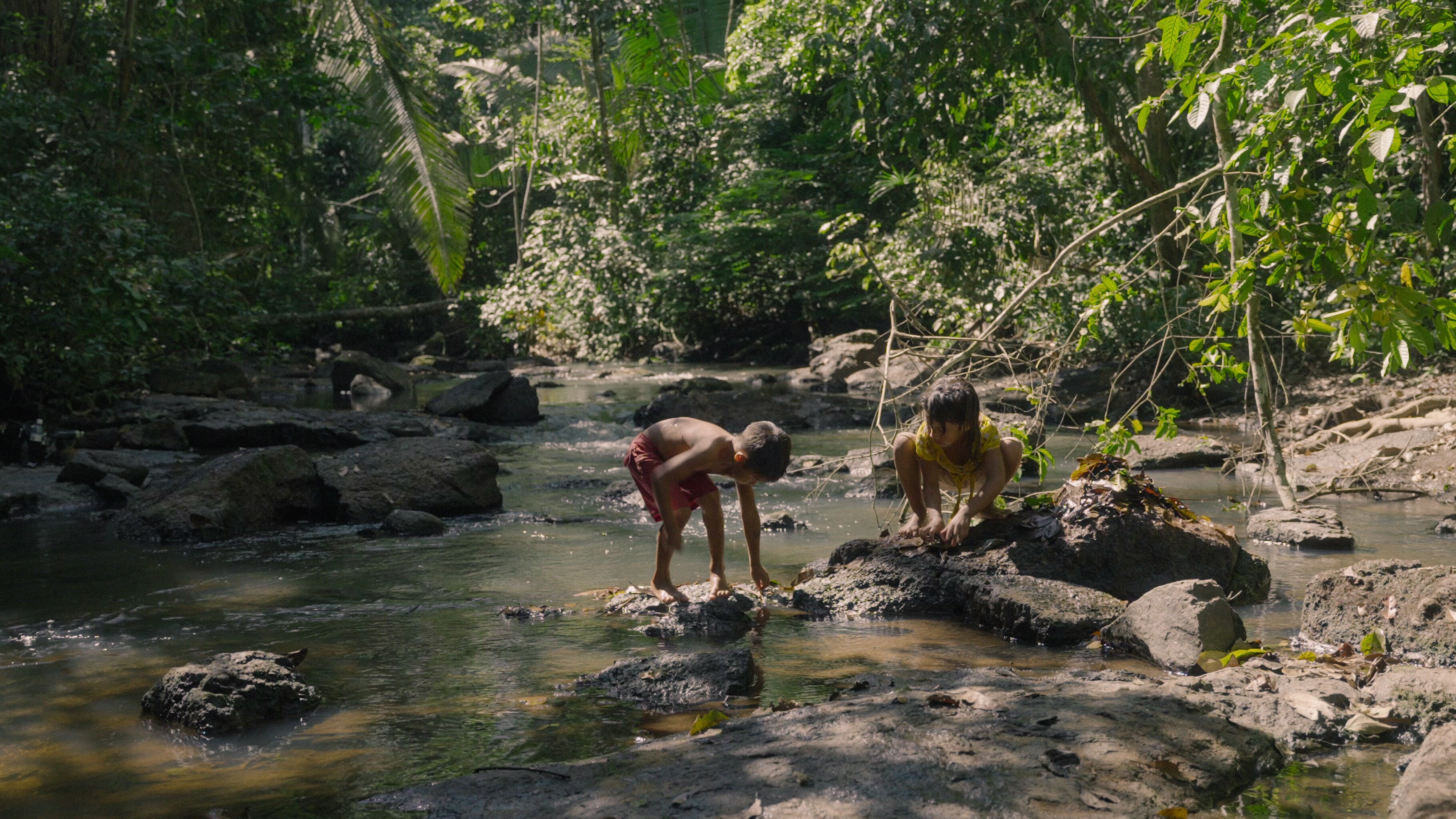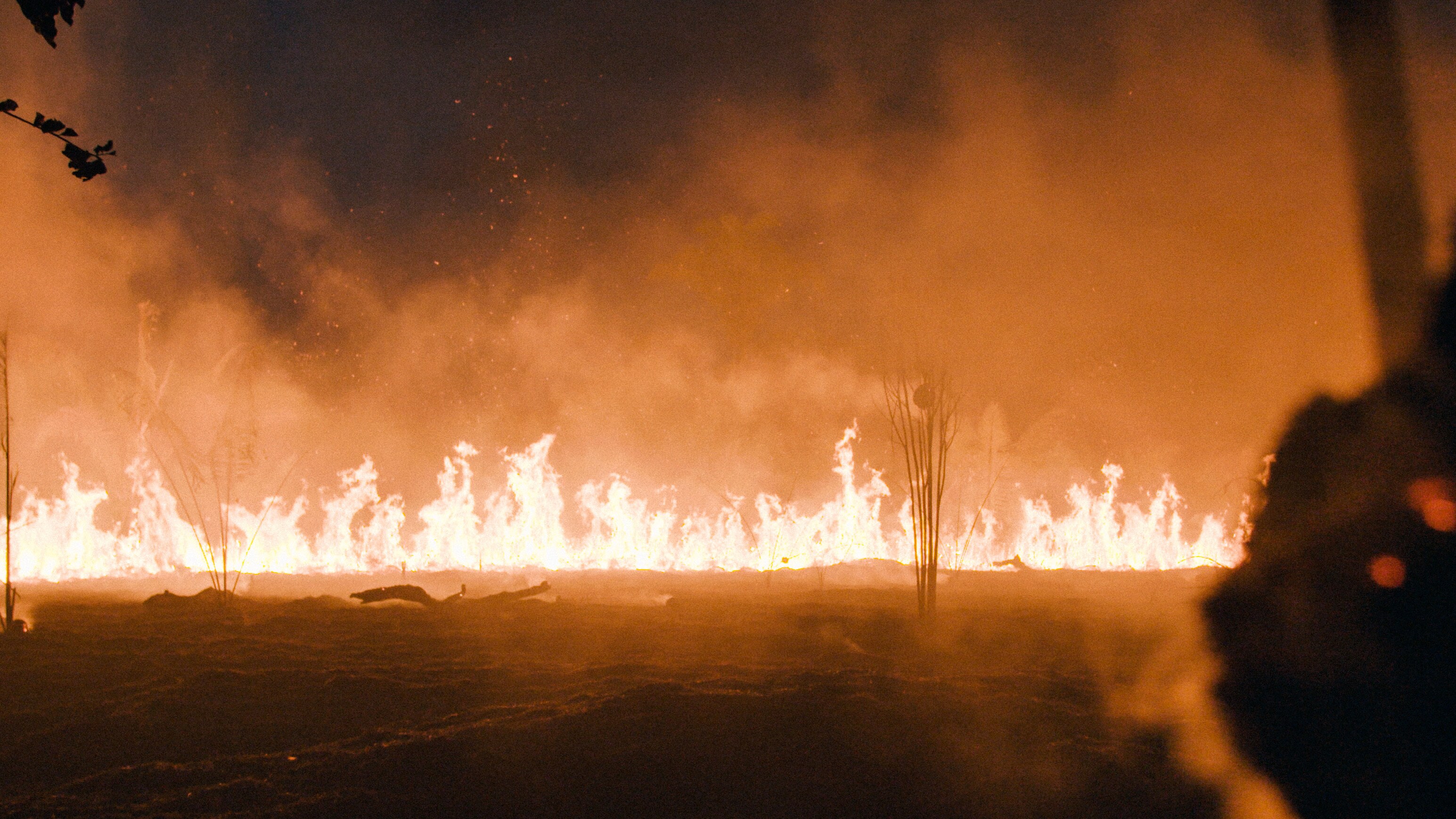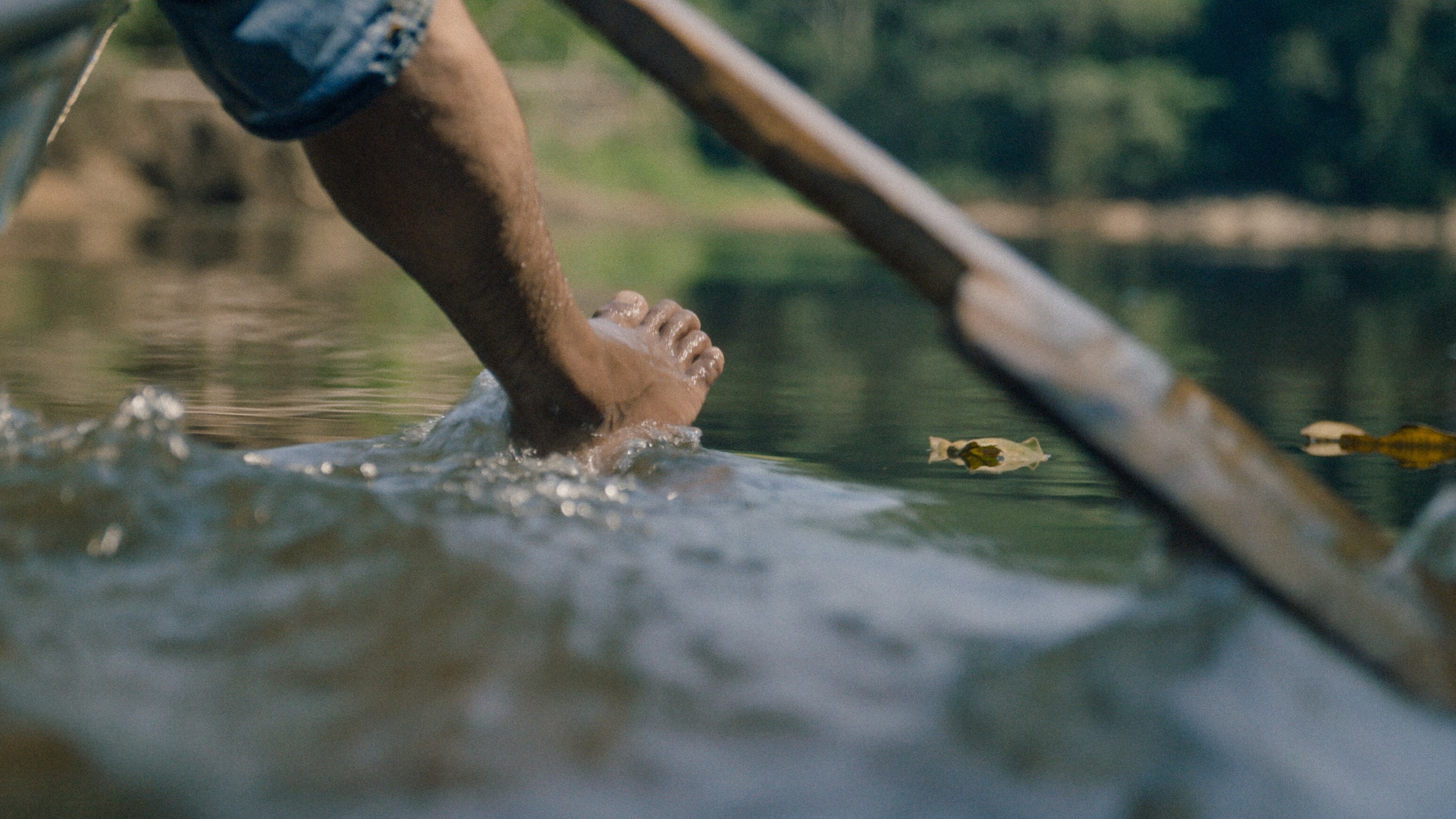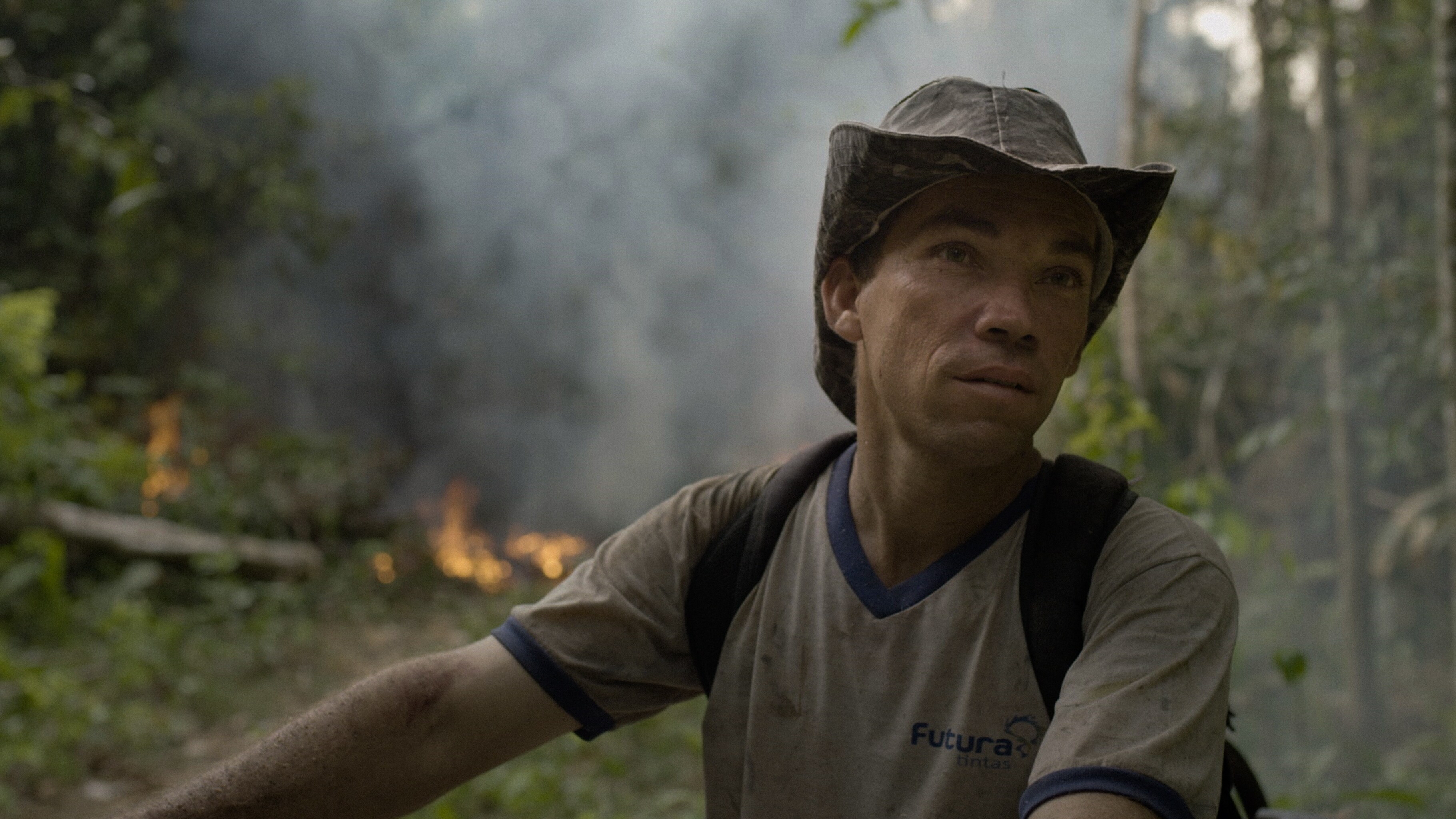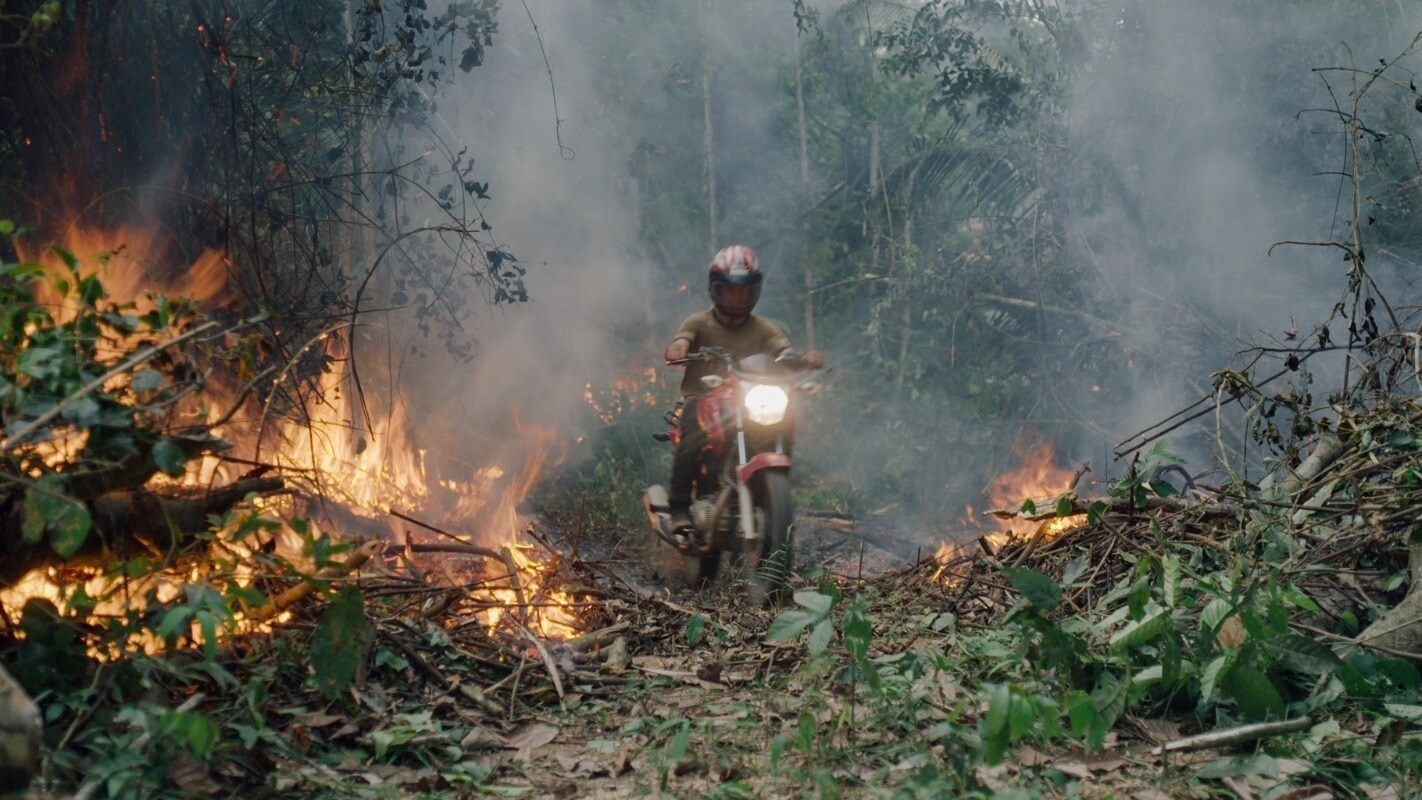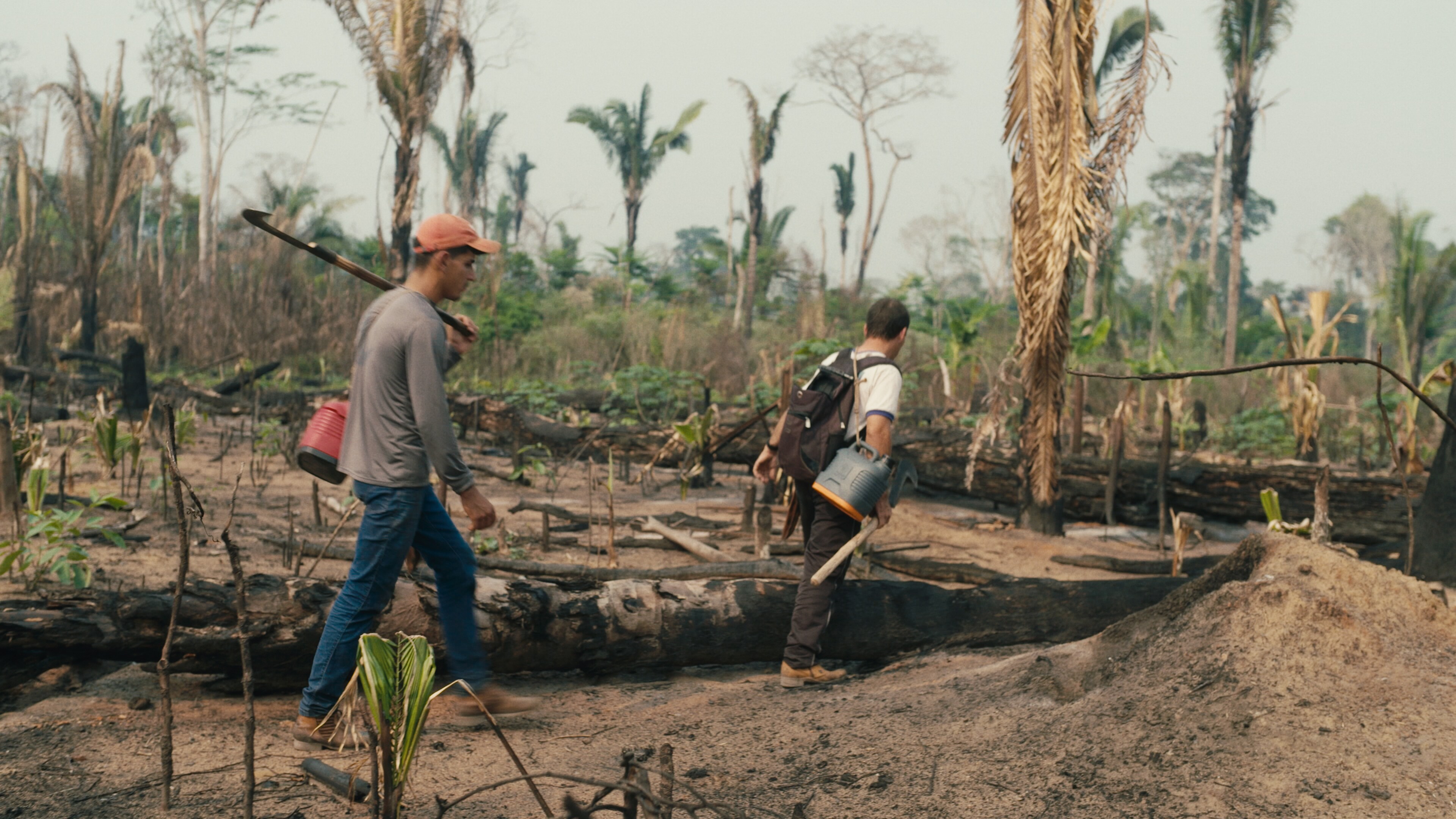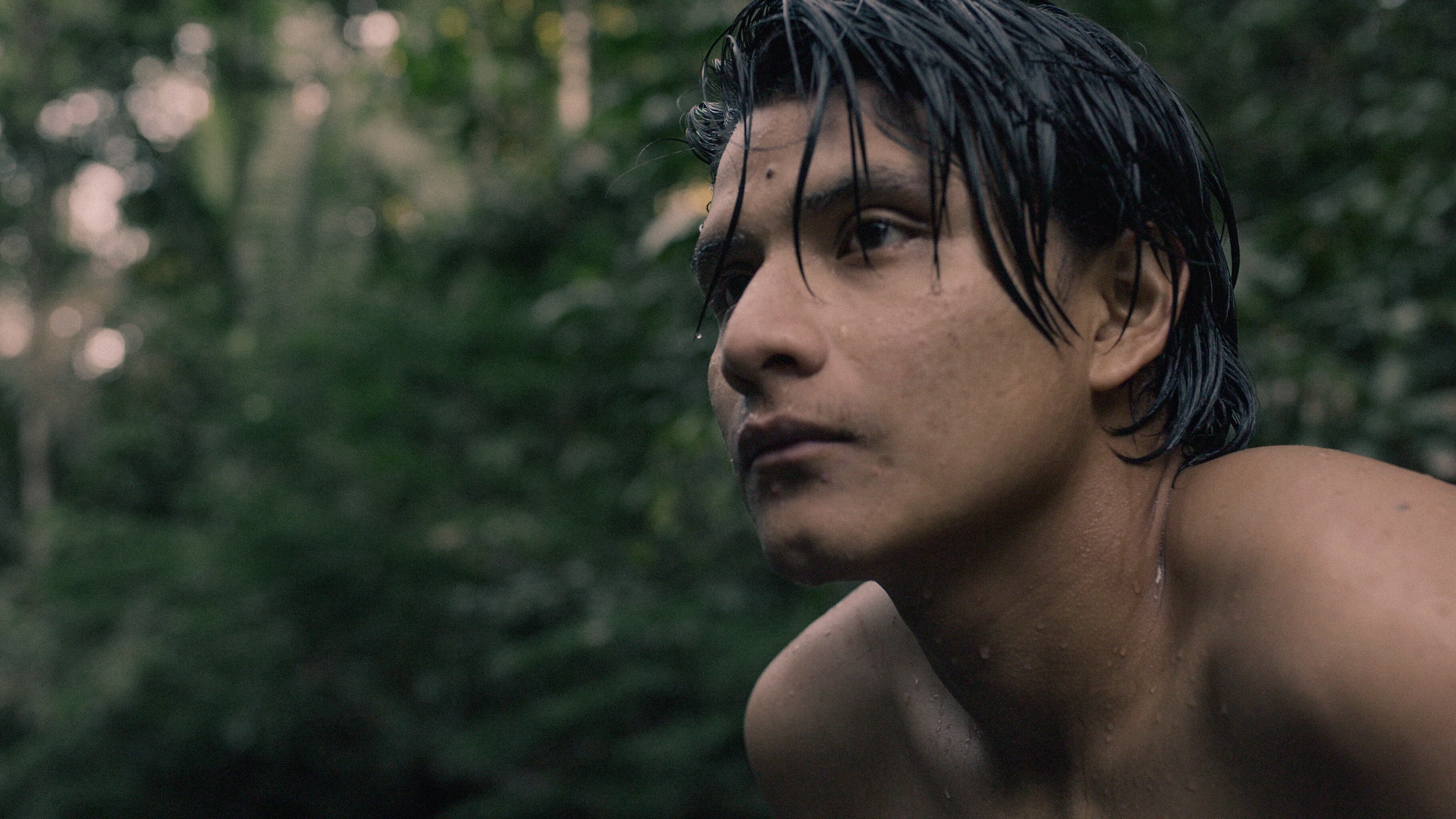The Territory
THE TERRITORY provides an immersive on-the-ground look at the tireless fight of the Indigenous Uru-eu-wau-wau people against the encroaching deforestation brought by farmers and illegal settlers in the Brazilian Amazon. With awe-inspiring cinematography showcasing the titular landscape and richly textured sound design, the film takes audiences deep into the Uru-eu-wau-wau community and provides unprecedented access to the farmers and settlers illegally burning and clearing the protected Indigenous land. Partially shot by the Uru-eu-wau-wau people, the film relies on vérité footage captured over three years as the community risks their lives to set up their own news media team in the hopes of exposing the truth.
Meet the Participants
-
Bitaté Uru-eu-wau-wau
PARTICIPANTPritz knew from the start of filming that Neidinha would be one of the film’s central protagonists. In the early weeks of filming inside the territory, he began to focus on one of her mentees: Bitaté, an 18-year-old who radiated both youthful energy and seriousness of purpose. “I began to understand that Bitaté was a very special person,” Pritz remarked. “You could tell he learned very quickly. He made people laugh and was really light-hearted. At the same time, he had this ambition. He was going to a white high school outside the Uru-eu-wau-wau territory. He seemed to bridge these two different worlds pretty effortlessly.”
Bitaté was not yet 19 when the Uru-eu-wau-wau elders nominated him to become the new president of Jupaú Association, the leadership body that engages with the government and other outside entities. “I think the elders felt that Bitaté was well-equipped to respond to the mounting threats against their community,” Pritz comments. “Along with the invasions, there were new types of attacks coming in the form of laws and budget cuts and things like that. Bitaté understood that world pretty well. He’d learned how to fly drones and used them for surveillance. It was clear that technology and media were going to become a big part of how he would respond to all of these threats.”
The Uru-eu-wau-wau’s dedication to safeguarding their territory is rooted in their ancient connection to the land. As Bitaté describes it, “We have a special love and care for our territory because it’s where our ancestors are from; it’s where all the wisdom is. Our culture, our traditions, our traditional foods and medicinal plants are all inside the forest. It’s a wealth we want to preserve for future generations. That’s why we’ve fought, and are still fighting, for this territory.”
-
Neidinha Bandeira
PARTICIPANTUchida introduced Pritz to environmental and human rights activist Neidinha Bandeira, leader and co-founder of the nonprofit Kandidé Ethno-Environmental Defense Association. Neidinha spent her first 12 years in the rainforest of northwestern Brazil, where her father worked as a rubber tapper. Her mother taught her to read using books and magazines that arrived with biannual supply shipments. She was fascinated by American Wild West stories — “bang-bang” books as they were known — but also troubled by what she read. She had grown up seeing the Indigenous Uru-eu-wau-wau people peacefully going about their lives and keeping to themselves. That didn’t happen in the “bang-bang” books. “I always felt sad when I read those stories. History showed the Indigenous people were already there, so how was it possible that they were expelled from their land, and killed and persecuted by the U.S. Army? That always disturbed me a lot,” she recalls.
Neidinha spent over four decades working directly with Indigenous communities to defend their rights and protect their lands. In 1984, she moved back to Uru-eu-wau-wau territory as a ranger for FUNAI, the government agency responsible for protecting the traditions, cultures and rights of Indigenous people. A rush to exploit the rainforest for logging, mining, farming and cattle ranching was underway. While the Uru-eu-wau-wau had been granted sovereignty over 7,000 square miles of their ancestral territory, illegal incursions and attempted land theft were common. Neidinha and the Uru-eu-wau-wau worked together to conduct surveillance and catch invaders, forging an enduring relationship. After exposing corruption inside FUNAI in 1990, Neidinha and her fellow whistleblowers founded the nonprofit Kandidé Ethno-Environmental Defense Association to continue their work with Indigenous populations.
The activists’ dedication and the urgency of the moment pointed towards a documentary about the Uru-eu-wau-wau and their fight to preserve their land. In the years since the Uru-eu-wau-wau were first contacted in 1981, deforestation has transformed what had been one of Brazil’s major rainforests. “Neidinha had a really strong focus on the Uru-eu-wau-wau as the biggest territory in the state of Rondônia, a territory with huge ecological importance for the entire region,” Pritz notes. “She’s known this community for over 40 years, many of them since they were born. Their land is triple the size of Delaware and they’ve got 183 people trying to defend it. It’s so hard.”
Meet the Filmmakers
-
Alex Pritz
DIRECTORAlex Pritz is a documentary film director and cinematographer focused on human’s relationship with the natural world. Pritz’s directorial debut, THE TERRITORY, premiered in the World Cinema competition at Sundance 2022, winning both an Audience Award and Special Jury Award for Documentary Craft, making it the only film at that year’s festival to win awards from audience and jury alike. Pritz also worked as a cinematographer on the feature documentary “The First Wave” with director Matt Heineman, and as a cinematographer and field producer on Jon Kasbe’s feature documentary “When Lambs Become Lions” (Tribeca 2018). Prior to that, Pritz co-directed, shot and edited the documentary short “My Dear Kyrgyzstan” (Big Sky 2019). He is a co-founder of Documist and has received grants from the Sundance Institute, IDA Enterprise Fund, Catapult Fund and Doc Society.
Pritz holds a Bachelor of Science from McGill University, where he studied Environmental Science and Philosophy. In 2012, he received an inaugural Dalai Lama Fellowship for his work developing film curricula alongside low-income communities in the Philippines and taught participatory film workshops for lawyers and human rights advocates around the world.
-
Will N. Miller
PRODUCERWill Miller is a documentary filmmaker and co-founder of Documist, a production company based in New York City and Toronto. His work focuses on environmental conflict, migration and human rights. He has worked in over 30 countries and speaks English and Spanish fluently, as well as Portuguese and French conversationally.
THE TERRITORY is the first feature film Miller has produced. Before that, he worked primarily on short films and digital features, garnering several awards as well as Emmy® and Canadian Screen Awards nominations. His work has been published by The New York Times, The Guardian, The Economist, CNN, NBC and BBC. From 2017 through 2019, he worked at Human Rights Watch, where he produced over 100 videos reaching millions of viewers online and broadcast by dozens of news outlets around the world.
Miller is dedicated to teaching and sharing the craft of documentary. He has worked on a range of participatory multimedia projects in the U.S., Canada, Kenya, Haiti, the Philippines and Brazil, from photography projects with kids to evidentiary video techniques for human rights defenders to masterclasses for aspiring cinematographers. He taught part-time at the East African Film Academy as well as the Aga Khan Graduate School of Media and Communications and has given dozens of workshops around the world.
Miller studied environmental sciences at McGill University. His research focused on historical settlement patterns in the Napo River Valley in the Peruvian Amazon as well as land loss and displacement of the Emberá Indigenous community by the Alto Bayano hydroelectric dam in Panama
-
Sigrid Jonsson Dyekjær, P.G.A.
PRODUCERSigrid Dyekjær has produced more than 30 documentary films, including the Oscar®-nominated documentary “The Cave” (2020) by Feras Fayyad, for which she won an Emmy for Exceptional Merit – Documentary Filmmaking and a Peabody Award. She’s won numerous awards including Outstanding Achievement in Production at Cinema Eye (2020). Other notable titles include “The Kingmaker” (2020), “Scandinavian Star” (2020) and “Aquarela” (2018) by Victor Kossakovsky.
-
Darren Aronofsky
PRODUCERAcademy Award®-nominated filmmaker Darren Aronofsky was born and raised in Brooklyn. Aronofsky heads Protozoa Pictures based in Chinatown, New York. His credits include “Pi,” “Requiem for a Dream,” “The Fountain,” “The Wrestler,” “Black Swan,” “Noah,” “mother!” and his upcoming A24 film “The Whale.” As a producer under his Protozoa label, Aronofsky was responsible for “Jackie,” which garnered three Academy Awards; the documentary feature “Some Kind Of Heaven,” which premiered at the 2020 Sundance Film Festival; and the docu-memoir “Serendipity,” which made its world premiere at the 2019 Berlin Film Festival. Most recently, he executive produced the six-part National Geographic docu-series “Welcome to Earth,” starring Will Smith.
-
Gabriel Uchida
PRODUCERGabriel Uchida is a Brazilian journalist and visual artist with over a decade of experience working on global stories. His work has been published in over 30 countries, and Uchida has had solo exhibitions of his photography in Sao Paulo, Addis Ababa and Berlin. In 2016, he decided to move to the Amazon and focus his work on environmental and Indigenous issues.
-
Lizzie Gillett
PRODUCERLizzie Gillett develops and produces feature documentaries at the award-winning Passion Pictures, best known for the Academy Award-winning “Searching for Sugar Man.” Gillett recently produced “Lady Boss: The Jackie Collins Story” (2021), which premiered at Tribeca and had a 40-cinema launch event in the U.K. before broadcasting on CNN, the BBC and Netflix.
Gillett is the sole producer of the climate change documentary “The Age of Stupid” (2009), which was No. 1 at the U.K. box office and screened on TV, DVD and in cinemas around the world.
-
Tangãi Uru-eu-wau-wau
CINEMATOGRAPHERTangãi is a teacher, cinematographer and member of the Jupaú Surveillance Team — an Indigenous group of land defenders. He lives in the Uru-eu-wau-wau territory, one of the most attacked reserves in the Brazilian Amazon.
-
Carlos Rojas Felice
EDITORCarlos Rojas is a documentary editor based in New York City. He has edited “They Took Them Alive” (Full Frame 2017) and “Tre, Maison, Dasan” (San Francisco Intl FF 2018), for which he received the Karen Schmeer Award for Excellence in Documentary Editing at IFFBoston. He has also edited “The Great Hack” (Sundance 2019), “White Noise” (AFI 2020) and the Netflix documentary series “We Are: The Brooklyn Saints” (2021). Rojas was a contributing editor at the Sundance Documentary Edit and Story Lab in 2013 and 2016 and an advisor at the Sundance Art of Editing Lab in 2020.
-
Katya Mihailova
COMPOSERKatya Mihailova is a composer for film and media based in New York City. She is a British Academy Television Craft Awards (BAFTA) 2018 Original Score Nominee and a 2016 Film Composer Fellow at the Sundance Institute. Mihailova’s notable original scores include “Born Free”(2018), a British Russian documentary for UK’s Channel 4; “Russian Woodpecker”(2016), a documentary by Chad Gracia on the revolution in Ukraine; “The Restoration”(2020), a Peruvian narrative feature by Alonso Llosa; the Libyan British documentary “Freedom Fields”(2019); the Sundance-premiered documentary “Coded Bias,” about modern inequality in technology; and “Tik Tok, Boom!” (2022). Mihailova is originally from Bishkek, Kyrgyzstan, and holds a master’s degree from the Manhattan School of Music in piano performance and composition.
-
Txai Suruí
EXECUTIVE PRODUCERTxai Suruí is a 24-year-old Indigenous activist from the Amazon. She was born on the frontlines of the rainforest and raised by a family of warriors. Now, Suruí is one of the most prominent voices from the forest in the fight against climate change. She got the world’s attention after a powerful speech for world leaders during COP26’s opening ceremony in Glasgow, U.K.
Directed by Alex Pritz
Produced by Darren Aronofsky, Sigrid Dyekjær, Will N. Miller, Gabriel Uchida, Lizzie Gillett, Alex Pritz
Executive Producers Carolyn Bernstein, Ari Handel, Brendan Naylor, Dylan Golden, Txai Suruí, Tejubi Uru-eu-wau-wau, Potei Uru-eu-wau-wau, Jack Weisman, Danfung Dennis, Alexandra Johnes, Rebecca Teitel, Loren Hammonds, Bryn Mooser, Kathryn Everett, Justin Lacob, Rafael Georges, Felipe Estefan, Andrew Ruhemann, Romain Bessi, Philippe Levasseur
